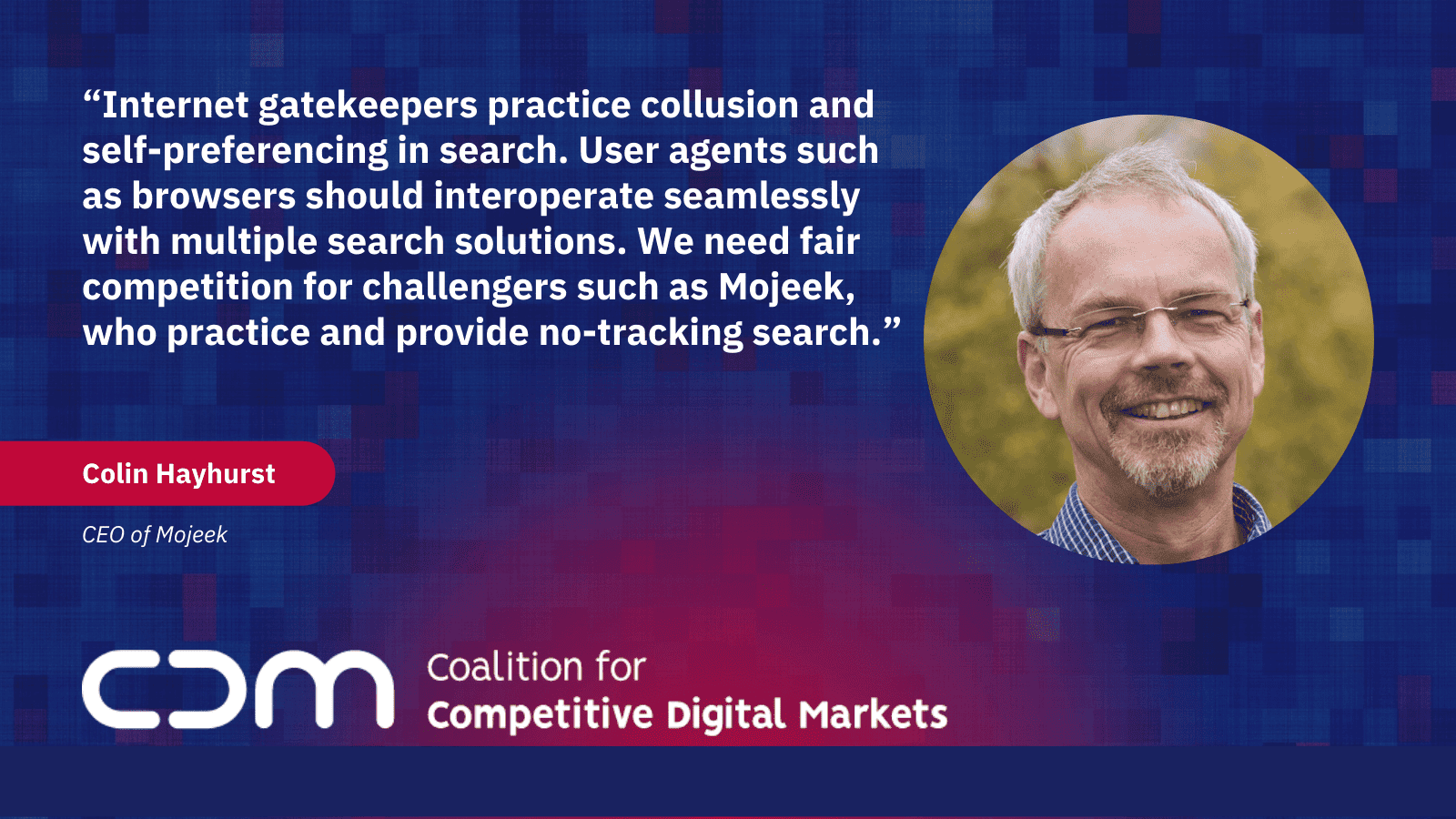Gatekeeper Self-Preferencing and Co-operation in Search

The Coalition for Competitive Digital Markets, which we wrote about previously, has now grown to over 50 companies from 16 countries. Last week we wrote to EU MEPs, urging them to include and support stronger upfront rules for dominant “gatekeeper” firms in the upcoming Digital Markets Act. Collectively we are have advocated for more effective amendments to address the issues of interoperability, self-preferencing, default settings and bundling. These are issues that are important to all Coalition members as we challenge Big Tech. Here we write about how these issues relate to search and highlight the obvious and more subtle ways in which the “gatekeepers” put up barriers to genuine alternatives like Mojeek.
In the 1990s Microsoft used its dominant position to impose Internet Explorer on Windows users. Anti-trust action, on that behaviour in particular, opened up the market for innovators like Google, and the resurrection of Apple. Ironically Google and Apple have now joined Microsoft with those three now operating with similar tactics and as oligopolists in web search. Amazon are getting in on the act too.
Regarding web search, these four gatekeepers co-operate to keep search challengers out. They actively suppress choice and continue to practice self-preferencing, and of each other. Microsoft’s Edge browser preferences Bing, their own search engine, and offers choices only from Google and Bing syndication partners (Yahoo, DuckDuckGo and Ecosia). In Windows the Edge browser is preferenced, and even overrides a user's different choice of search engine when searching via the Windows search box as we explained recently. Google’s Chrome OS and Android are preloaded with its Chrome browser, which outside Europe has Google as its default search engine; and with other choices only from Microsoft; via Bing and its syndication partners. Apple preferences Safari on iOS and MacOS allowing choices of search services only from Google or Microsoft. Amazon is playing a similar game with the Silk browser which provides no choice at all, enforcing search with Bing.
None of these gatekeepers enable search across multiple search engines and services. Their search and combined address/search bars, are deliberately designed to direct you straight to only one search service. Sadly only a small percentage of users benefit from search choice and diversity by using Mozilla’s Firefox. The Firefox search bar enables a multitude of user-chosen search options to be selected from, with just one click; another post explains how you can do that today.
Users should be free to choose what they use for search. The imposition of defaults and single choice lists leads to an unhealthy information economy. Multiple choice in search, and a prohibition of enforced defaults and choices would also encourage innovation and competition.
With the coalition we are advocating for a Digital Markets Act which advances fairness and stronger openness in digital markets, allowing businesses of all sizes to compete on fair grounds. This will lead to more and better choices for users and innovations which are demand driven rather than profit maximising for Big Tech.
Finally, companies of any size and from any country can apply to join the coalition, as detailed on the website.



